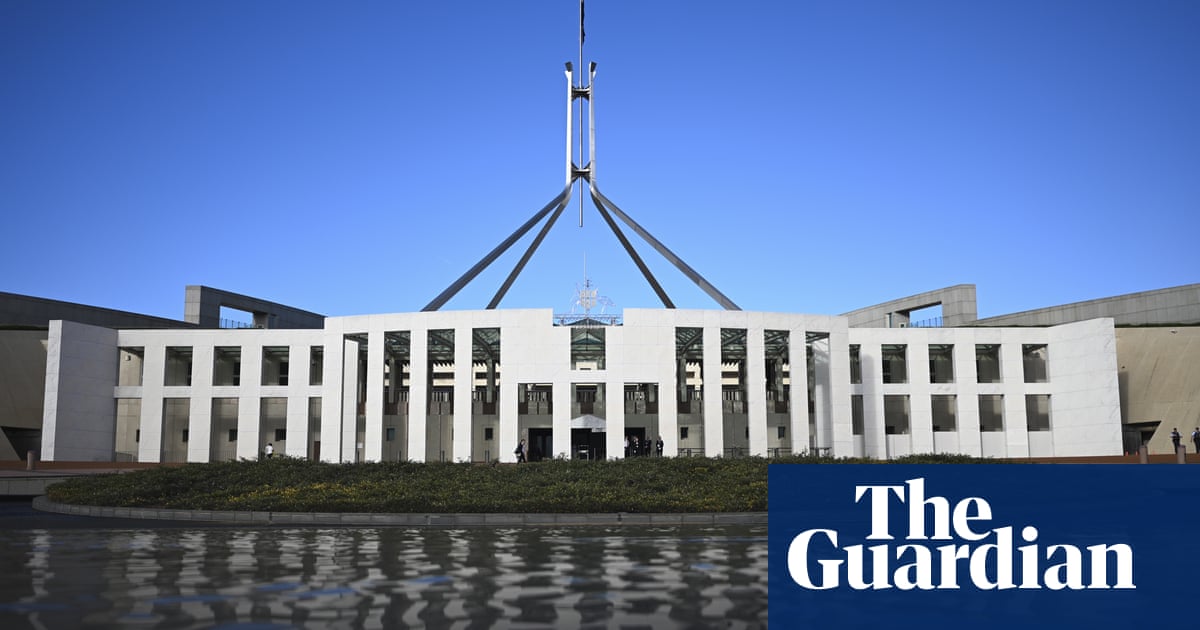Australians more likely to trust government advice on Covid-19 than other nations

Nearly three in four Australians trust the government to provide them with accurate information about Covid-19, according to a new study, whereas a strong majority say they don’t have similar confidence in what they see on social media.
The results from the YouGov-Cambridge Globalism Project – a large snapshot of public sentiment across 25 countries shared with the Guardian – suggest Australia enjoys one of the highest levels of trust in government to deliver accurate messages, while the public has also given Australian authorities the tick for their management of the pandemic.
The study also shows four in 10 respondents believe Australia should become more independent from the global economy post-pandemic. But just over half of those sampled (52%) see globalisation as net positive for the Australian economy, against 20% who do not.
The study also tries to gauge the uptake of conspiracy theories, with just 5% of the sample saying they think Covid is a myth created by powerful forces and the virus does not really exist, well outnumbered by the 88% who do not agree with the statement. The belief in this conspiracy theory was found to be lower in Australia than in almost every other country covered in the survey.
The Australian results are based on answers from 1,048 adults who were surveyed online from 30 July to 19 August, with the figures weighted to be representative of all Australian adults, with a margin of error of about 3%.
It provides an insight into trust in various sources of information, at a time when authorities and regulators have become increasingly concerned about the spread of disinformation and misinformation, including on social media platforms.
Some 73% of the sample said they trusted government in Australia in general to provide accurate information about Covid-19, compared with 24% who did not.
Of the 25 countries covered by the international survey, only Denmark, India and Indonesia registered higher levels of reported trust in government messaging on Covid-19.
When Australians were asked specifically about the prime minister, Scott Morrison, 65% said they trusted him and 30% said they did not. When broken down even further based on political support, even a majority of Labor supporters who responded – 55% – trusted Morrison on this topic compared with 38% who did not.
Trust in the ABC was running strongly, at 65% to 28% across the sample, with similar support levels among the Liberal party support base. However social media was trusted by just 23% of the sample, while it was distrusted by 70%.
The results help explain the political challenge facing the Labor party this year, with the opposition leader, Anthony Albanese, saying it has been complex because people have been willing governments to succeed during the pandemic.
Albanese and state and territory opposition leaders around the country were excluded from the national cabinet formed at the height of the crisis to manage shared decision making.
Some 79% of the sample believed the government in Australia had done well in its handling of Covid, compared with 19% saying badly. Respondents also approved of Morrison’s handling of Covid in similar numbers.
By significant margins, Australians rated their country’s performance in limiting the spread of coronavirus as better than that of a range of countries including the UK, US and China.
A notable exception was New Zealand, which 54% of the sample thought had done better than Australia (versus 17% who held the contrary view).
In July and August, when the survey was conducted, Australians appeared comfortable that the right balance had been struck in dealing with the pandemic.
Just 13% of the sample said authorities had put too much priority on limiting the spread of the virus, while 24% were at the other end of the spectrum, saying there had been excessive focus given to allowing ordinary life to function. A majority – 56% – thought the balance was “about right”.
It also shows strong support among Australians for wearing masks to stop the spread of Covid – an issue that has been more contentious in the US.
More than 80% of the Australian sample believed facemarks were effective in stopping the virus’s spread, and there was sizeable support for making them compulsory in places like public transport, airports and inside shops.
Against the backdrop of increasing tensions in the bilateral relationship between China and Australia – and with Donald Trump repeatedly seeking to blame China for the pandemic given it was first reported in Wuhan – nearly one in three Australian respondents said it was probably or definitely true that the Chinese government deliberately created and spread Covid.
The belief in this statement was slightly higher in Australia than in Great Britain, but slightly lower than in the US.
*** This article has been archived for your research. The original version from The Guardian can be found here ***

